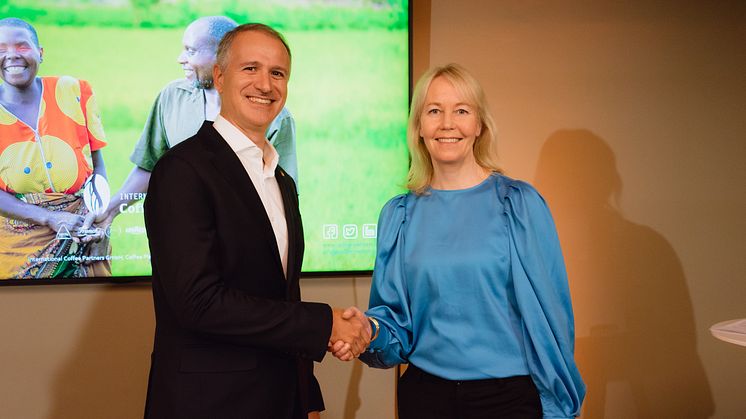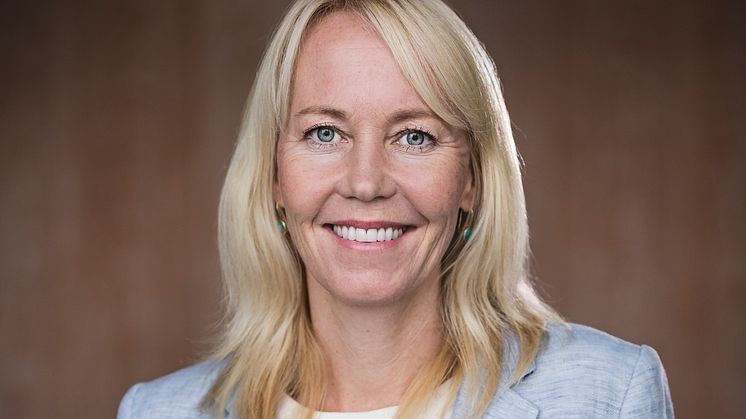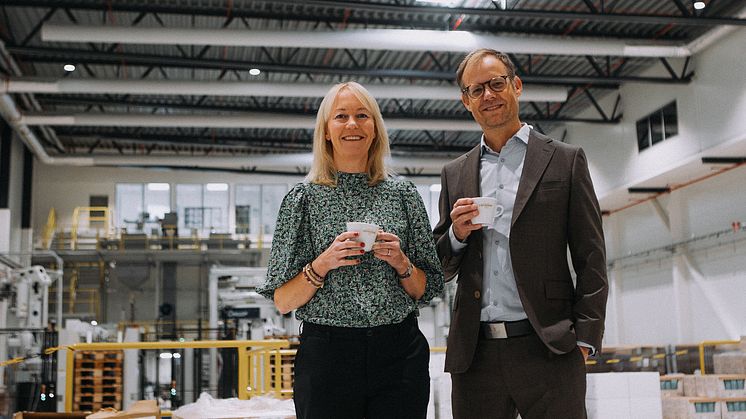
Blog post -
Kathrine Löfberg hands over the ICP chairmanship to Rui Miguel Nabeiro
The non-profit partnership International Coffee Partners (ICP) has announced its new Chair: Rui Miguel Nabeiro, CEO of Grupo Nabeiro/Delta Cafés, Portugal. He is taking over the role from Kathrine Löfberg, Chair of the Board at Löfbergs, Sweden, who was in office for the past seven years.
At the official handover in Lisbon on March 8, Kathrine Löfberg, Rui Miguel Nabeiro, and Michael Opitz, Managing Director of ICP outlined where ICP stands today, reviewed the past years and presented what is planned for the upcoming years.
Löfbergs is a coffee roaster owned by Kathrine Löfberg’s family in the 4th generation, so coffee and sustainable coffee growing are her life. Her term of office as ICP’s Chair spanned several milestones and challenges. In 2021, ICP celebrated its 20th anniversary. Consistency is something inherent to family-owned companies like the ICP shareholders. They are used to planning ahead and focusing not on the next quarter, but the next generation. And from the beginning in 2001 on, it was clear that ICP’s purpose is not being a charity association, just providing subsidies to the farmers, but fostering a sustainable future for the industry.
Kathrine Löfberg: “Our experience of 20 years ICP taught us to not look at coffee production in an isolated way but at the family farm as a whole. We take a holistic approach including youth, gender issues, off-farm activities, and nature.”
ICP has constantly extended its reach. Since its founding, ICP has already reached more than 110,000 smallholder families in 13 countries. In 2019, Ethiopia was added as a project country. The ICP project there is cofinanced by the Austrian Development Agency (ADA). It includes the setup of efficient, inclusive farmer organizations, improving farming systems and their resilience to climate change, food and nutrition security as well as increased gender equality.
Kathrine Löfberg: “During the COVID-19 pandemic, additional pressure was put on livelihood situations that were already vulnerable. However, we observed that families who participated in ICP projects were able to react to and mitigate challenges posed by the pandemic.”
Apart from these milestones, the past years were marked by the COVID-19 pandemic, witnessing challenges in food security, transportation, and availability of workforce and inputs in the projct regions. Central America was hit by the tropical storms Eta and Iota. After Eta had brough flash flooding, forcing thousands of people out of their homes, Iota washed over the region with strong winds, torrential rains, and deadly mudslides, adding even more destruction and increasing food insecurity and poverty in addition to the prevailing pandemic. ICP therefore provided an emergency relief fund for smallholder families.
Kathrine Löfberg: “It was a pleasure to lead ICP as its Chair for so many years and of course, I will happily keep supporting ICP’s activities as part of the Steering Committee. I wish all the best to the new Chair Rui Miguel Nabeiro.”
For the upcoming years, ICP plans to further develop its activities with a specific focus on youth and climate change. As ICP’s new Chair, Rui Miguel Nabeiro will oversee these activities together with the Steering Committee.
Rui Miguel Nabeiro: “I am happy to support the progress of our joint work. Youth and climate change are very relevant megatrends in sustainability. We aim to enable youth to explore agriculture and coffee as pillars of their livelihood.”
A major challenge in coffee growing regions is that youth often migrate from the rural to more urban areas. They are hoping for a better life and opportunities there. ICP’s goal is to empower youth within their rural communities, create prospects for them on site, within and outside agriculture or the coffee industry. Developing their social and technical capacities shall enable them to develop their own living.
With regard to climate change, ICP plans to further strengthen the initiative for coffee&climate (c&c) which was founded by ICP in 2010. Kathrine Löfberg is the current Chair of c&c. Therefore, she and Rui Miguel Nabeiro will continue to work together closely on these common subjects.
Delta Cafés joined ICP in 2018. The company is a coffee roaster in the 3rd generation. All companies of ICP see the benefit in working together on a pre-competitive basis, joining forces for a sustainable coffee sector. Another goal for the coming years is therefore to expand ICP’s cooperations. Building partnerships helps maximizing the impact of ICP’s work. But, of course, if you want to build partnerships, you have to be a good partner yourself: ICP is willing to share their knowledge and learnings, to constantly keep learning, and to commit on a long-term basis. Private and public partners can include experiences of ICP in their own work.
Rui Miguel Nabeiro: “ICP has a lot to offer when it comes to knowledge and experience on the ground. Cooperation with public and private actors helps us all to utilize synergies and address the challenges in the regions more efficiently.”




